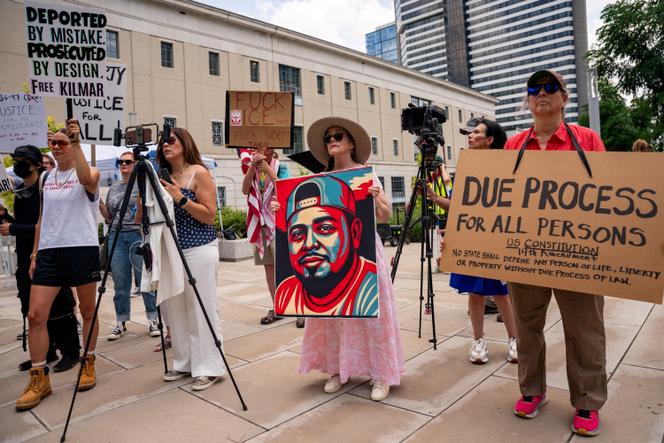


Among the thousands – or even millions – of people whose lives have been upended over the past six months by Donald Trump's policies, Kilmar Abrego Garcia holds a special place. The 30-year-old Salvadoran, who entered the US illegally at the age of 16, had managed to build a relatively quiet life in Maryland with his American wife and their three children, one of whom has autism. Through a union, he secured an apprenticeship contract in metalworking.
On March 12, he was thrust out of anonymity when immigration police arrested him as he was picking up his son from his grandmother's home in the Washington, DC metropolitan area. Three days later, he was among more than 200 other "criminals" on a plane headed to El Salvador and a high-security prison at the Terrorism Confinement Center (Cecot). It was, by the Department of Homeland Security's own admission, an "administrative error": in 2019, a judge had prohibited his return to his home country, where he faced the risk of torture.
Kilmar Abrego Garcia has never regained his freedom, a victim caught in a political-judicial system beyond his control. Over the course of four months, he was shuttled from Maryland to Louisiana, from Texas to El Salvador, from which he was only brought back on June 6, following pressure from the judiciary. Against his will, he has become a symbol of the standoff between the courts – which continue to uphold the principle that no one can be detained without trial – and Donald Trump, who is quick to see a criminal in every migrant, and a challenge to his policies in every reminder of the rule of law.
You have 67.37% of this article left to read. The rest is for subscribers only.
